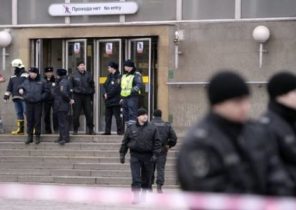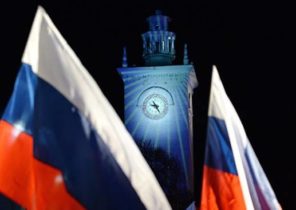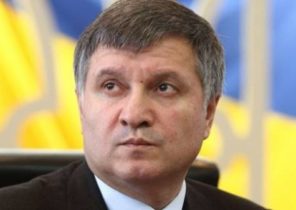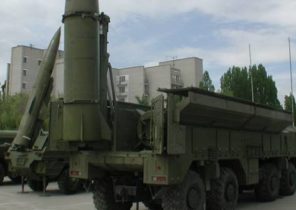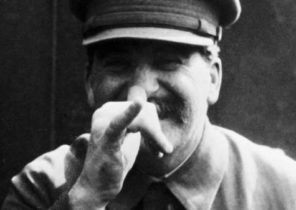
Neither the occupation of Poland, no rapid advance deep into the USSR in accordance with the plan “Barbarossa” has not delivered such joy, stingy on the emotions to Adolf Hitler, as the capture of France and the official surrender of that country on 22 June 1940. Then from an excess of emotion, the Fuhrer even rushed to the dance.
From this day, the country, which was considered impregnable due to the more than 400-kilometer line Maginot (Maginot), has been divided in two. The Northern part was occupied by German troops, and the South was ruled by the collaborationist government located in Vichy.
As legend has it, in that France was under Nazi occupation, hundreds of thousands of people joined the ranks of the Resistance movement to fight against the aggressors. They carried out attacks and acts of sabotage, just as a hundred years before the Spaniards fought in the Iberian Peninsula against the despised Napoleon Bonaparte.
And yet, claims about the large number of people who responded to the call of General De Gaulle (who led the resistance from abroad), was nothing more than a myth. At least this was stated in an interview with ABC historian and writer Mario Escobar (Mario Escobar): “Most people were indifferent or collaborated with the Vichy regime”.
While Escobar also points to the fact that, although the influx of people into the ranks of the Resistance movement were not as massive, as is commonly believed, nevertheless, it still existed. The author believes that after the occupation of the country, many residents, though not taken in arms, but still fought with the Nazis. “Some tore down German propaganda posters, others were burned stocks of grain. Ways to make the lives of the aggressors was a lot of unbearable,” he adds.
It is about these forms of resistance described by the author in his latest historical novel “Children with yellow star”(“Los niños de la estrella amarilla”). Through the perception of children looking for their parents, this book talks about how the population of the small town of Le Chambon-sur-Lignon in southern France, despite the dangers, throughout the war rescued from the Nazis, thousands of Jewish children, including helping them to flee the country.
According to the author, the resistance of this small mountain town, which had taken place, showed the world that the fight against injustice is possible, not necessarily at the same time exposing themselves under the muzzles of enemy rifles. In Chambon-sur-Lignon efforts to rescue the children led by the local pastor of the Protestant Andre Trocme (André Trocmé). Knowing about the atrocities that happened in Germany, beginning in 1939, the pastor began to conduct explanatory conversations with parishioners about the value of human life and what it means to remain silent in the face of the doers of iniquity.
According to Escobar, is the salvation of the Jews was not as common as we want to believe, though reached a certain scale. “In France, indeed, were deported, only 50% of the Jews, while in other countries this figure reached almost 100%. The truth is the fact that the Vichy regime has a strict anti-Semitic policy by sending to Auschwitz dozens of trainloads of Jewish children.”
The book was published just a few weeks after the leader of the far-right National front of marine Le Pen (Marine Le Pen), said that France is not responsible for the atrocities committed in those years. She believes that the only guilty are the ones who then was in power.
— The role played by the Resistance movement in France?
— Although the French Resistance existed, it was sparse. It began to play a visible role mainly at the end of the war. The resistance ensured that the Germans, instead of the Eastern front, were compelled to send to France more troops than planned. But it is also true that the majority of the population were indifferent or collaborated with Vichy regime.
Most surprising is that the Vichy regime was not just subordinate to the Nazis, but was ideologically so close to them that even took in respect of French and foreign Jews new laws similar to the Nuremberg. For them, a ban was imposed on certain professions. Most of the Jews were people of the liberal professions such as a teacher or a lawyer. They were forbidden to hold public office and to be soldiers. The case came before the ban of mixed marriages, as in Nazi Germany, but they felt almost complete outcasts.
— The extent to which the Vichy government collaborated with Germany?
— The Vichy government persecuted not only Jews, but all the people from the Mediterranean who were considered hostile to their ideology. In particular, the Spanish Republicans, who had taken refuge in France, or Italian workers. If they didn’t have work, they were sent to concentration camps, created by the French.
In areas under the control of the Vichy government, had created a large number of camps in which imprisoned all who were considered “antisocial elements”. The sanitary conditions there were fairly heavy. To some extent, helped the Red cross and other similar organizations. The cells were overcrowded. It was not only in fear. The Vichy regime in ideological terms was akin to the Nazis.
So, what kind of resistance existed in France?
— There are many types of resistance. In France it was the boycott of the Germans.
With this work I wanted to show that resistance can be peaceful. Himself andré Trocmé (the main character of the events in Chambon-sur-Lignon) was so staunch a pacifist, in this small town almost to the end of the war, there were no attempts on the Germans and collaborators, as was common belief that peaceful resistance is the more effective.
Many French, for example, opposed to the Germans, changing the signs on the road, so as to knock them out of the way. Destroying other bread or stealing their clothes. They did not resort to violent action, though, and tried to create problems to the Germans in France. At the beginning of the French campaign was for the Germans almost summer vacation.
It should be noted that there was an internal and external resistance (led by Charles de Gaulle). Participants in both movements sought to ensure that France took part in their own liberation and the struggle against Nazism. The same was observed in the Netherlands and Belgium.
— As it became possible the emergence of the Vichy regime, which was supported by a certain part of the population?
— There was public opinion, blagopriatnoe fascist manifestations, because people did not know then what we know now. At that time people still didn’t understand what are fascism and Nazism. Many thinkers have considered them as an alternative to democracy, which started to come into a state of decline in Europe. For this reason, many countries came under the influence of totalitarian ideology.
But in the book “Children with yellow star” You talk about how the Vichy regime deported thousands of Jews…
All right. In French society was split. Sometimes it seems that France consists of only living in the cosmopolitan Paris. But it is not. It was a large number of conservative-minded peasants did not take the values of the Republic, who believed that the country has no order. They began to use anti-Semitic arguments coming from other places.
This part of society has found it necessary to support the “conservative revolution” (as they called it), in which she promised to defend traditional values, eternal France, who did not want to accept the new. In the end all turned to fascism.
— Hitler was aware of such views in France?
Yes. In fact, the division between free and occupied France was always temporary. The main objective of Hitler was not the conquest of France, and the establishment in her state, consonant with his ideas that subsequently would be joined to Germany. It was not only the fact that the Vichy regime collaborated with the Nazis, he also developed laws about the persecution of Jews, very similar to those that operated in Germany.
— In the novel “Children with yellow star” You talk about the French concentration camps, where the Vichy regime sent the Jews.
— Yes, indeed. These concentration camps were not created by the Vichy regime and the Third Republic, when she wanted to take control of the Spanish Republicans, fugitives from Franco in the South of France. Initially it was assumed that the camps will be temporary. They are arranged on the foreshore, and the conditions were inhuman. Gradually, they spread throughout the South of France. But the war started that changed everything. Some prisoners released, so they joined the ranks of the army (for example, the Republicans have joined the Foreign Legion). Other used to dig trenches. Everything was determined by political considerations.
Once in power, the Vichy regime altered the camps. Sent to refugees coming from Germany and other European countries, depending on their ideological or religious beliefs, oblivious to the fact that they were Jews or not. Also in these camps were placed “undesirable elements” as they were called. Gradually, the crowded living conditions in camps, lack of food and clothing has led to the fact that organizations like the red cross or the Quakers appealed to the likes of andré Trocmé, asking them to take Jewish children to a safe place.
— Whether carried out in France round up the Jews?
— Yes, there were several raids. Big bust took place in 1941, when 7 to 8 thousand Jews were sent to German concentration camps. But the most massive occurred in 1942, when the French gendarmerie seized children, the elderly and women. It was the fact that the Germans had requested only adults. The Vichy regime did not know what to do with children. And at first, they stayed in France. However, the French authorities told the Germans that didn’t want to leave my kids. In the end, a large number of children were sent to Auschwitz.
Many of these children lived in France since the mid 30-ies and had French citizenship. The Vichy government passed a law that allowed citizenship to deprive both themselves and their parents. All this was done to facilitate their removal from the country.
It was a cold and carefully planned step, it is not intended to serve the Nazis. After all, in the end, the French collaborators did much more than they were asked by the Germans. They were convinced that it is necessary to expel all the Jews.
— Collaborated whether the Vichy government with the Germans in deporting the Jews?
— The Vichy regime was thoroughly collaborationist in this matter. Another thing is that very few authors wrote that this government sent thousands of workers to forced labor in Germany. Something similar has been done, and many other countries.
Many were sent as slaves, from Italians to Spaniards. This slave labor force helped to support the Nazi regime at that time, the Germans fought at the front. For this reason, there are many dramatic stories that are still waiting in the wings.
— The French Resistance did not exist?
— No. France along with the Netherlands and Denmark was one of the countries that host the largest number of refugees. In France, took refuge many Jews. If French Jews were killed less than 50%, in the Baltic republics, this figure was almost equal to 100%. But the thing is that the people of France reacted very passively to the occupation.
— How can we explain this passivity?
I think the population was in psychological shock. The French could not assume that so quickly defeated. They could not accept this defeat. France could not resist the German power, no military or political terms. The Nazis presented it as something obsolete to be demolished. And with new ideas to fight hard.
We live in a society that believes new is always better, although this is completely wrong. In this particular case, for example, new were much worse. Nazism and fascism is communism in nationalist guise.
— How is it that a considerable part of the inhabitants become collaborators or indifferent to manifestations of anti-Semitism?
Anti — Semitism has always been a disgrace in Europe. And France in this sense is no exception, although it is we and unpleasant. The Jew has always regarded as an outsider, even if he lived in the country for decades. The fact is that the Jews lived in closed communities, kept their traditions, spoke their language… And it has been a question not of religion, and integration. Therefore, Europe has always been a large bundle.
Similar is observed and at us. Spain still is anti-Semitism, although 500 years ago the country had expelled most of the Jews. For example, under Franco refugees of the Jews-the Sephardim were not allowed to settle in the country, although allowed to cross the Iberian Peninsula if they were headed to Argentina.
But on the other hand, residents of some settlements, for example, Le Chambon-sur-Lignon, spoke out against the Nazis.
— Absolutely. But they knew very well what was going on. Since 1939, pastor Andre has conducted many interviews with local residents. He knew very well what was happening in Germany based on the events that unfolded around the Protestant Church to which he belonged. The Protestants refused to accept the terms the Nazis and separated from the official Lutheran Church. Given this information, the population of Chambon-sur-Lignon was able to correctly assess the course of events. When formed the Vichy government, the people of this town and the surrounding villages knew what to expect. The information received helped them to overcome the circumstances.
— How the people of this town helped Jewish refugees?
— My first thought was to send them to Switzerland or Marseille, where he has accumulated thousands of refugees waiting for the ship to leave Europe. Refugees were taken to Marseille by the same group that sent a lot of children in Chambon-sur-Lignon.
They did this because they had at their disposal the necessary infrastructure. It was created even before the war, the parishioners of the town, took at that time the children of workers of Lyon, to ensure the normal summer vacation. They also have a small hotel infrastructure (Chambon-sur-Lignon was a favorite vacation spot in the summer). In addition, pastor andré founded the pacifists to the children of Huguenots and Protestants had the opportunity to enter higher educational institution. All this made possible the deployment of such a large number of children.
— Do all residents of assisted?
— Yes, although between the local population and refugees, and there is some friction. Not so much with children as with adults, those who arrived earlier in private to get lost here. They wanted to leave the big city and bought up large quantities of food. This caused the growth of prices in the region and gave rise to some suspicion against the Jews, who dealt with these cases. But in the end, of course, prevailed a spirit of solidarity.
When pastor andré for some time in hiding for fear of being arrested for the leadership of this activity, the population continued to assist the refugees until the end of the war. Thus, it is showed that behind all this is not one person but dozens of ordinary people. None of the inhabitants did not betray their comrades. All were overcome by the spirit of unity and mutual support. Not only fought andré Trocmé, and all of them. As a single unit.
— Why neither the Germans nor the security services of the Vichy regime had not defeated the resistance?
— Nazis were in town arrivals. When in Chambon-sur-Lignon knew of their coming, we warned all refugees, that they went to the mountains.
Moreover, Chambon-sur-Lignon — a rather isolated place, where winter is not easy to get. In a sense, this town was separated from the rest of the world. There was not even the barracks of the gendarmerie, as this area was considered quiet. From the point of view of climate, it was both heaven and hell. So the Germans decided not to deploy its troops there.
There was a permanent military contingent, because they did not see the need. Although there was an attempt to deport Jews, Spanish Republicans and art workers who were in hiding there, in the end, all this closed his eyes. The Vichy government does not want to do it, and before the Germans were other problems.
— What?
— They started to lose the war and did not want to divert forces to the region did not have strategic importance. A decisive factor was also the lack of armed resistance almost to the end of the war. Therefore, Chambon-sur-Lignon just forgot.
In this case, raids were not?
— And was becoming increasingly intense. The latest raids were conducted in the summer of 1942. After the allied landings in Sicily, the Nazis decided that another landing can be made via Marseilles. So they deployed troops all over the surrounding area and deployed large-scale repression.
Let’s not forget, in particular that in this country wielded the notorious “butcher of Lyon”. Since then, danger began to grow.
The voltage was accompanied by an increase in raids. In the summer of 1943, Daniel (a cousin of Andre) was captured and sent to a concentration camp on charges that he was a Jew, although it was not. A few guys from school, which he directed, was also captured and sent to concentration camps.
— What kind of punishment was used in the Vichy regime against those who sheltered or helped Jews to escape?
— Usually executed, imprisoned or sent to Germany as a member of the Resistance (regardless, was there a person in the armed struggle or not). In Germany, these people could end their lives in a concentration camp. Any opposition meant a big risk. For himself and for his family members. Many members of the Resistance feared in the first place the persecution of their loved ones.
— Why your novel You have chosen history of this town?
I wanted to write a novel, telling about how children survived the war, and combined this storyline with the history of the town that became a refuge for dozens of kids. Taking this as a starting point, I decided to write about non-violent resistance pastor Andre and his wife Magda, the two strong-minded people. They made truly heroic deeds.
Despite this, the main theme of the book is children and their families. In this sense, I wanted to show how does the older brother who is still a child, in such an extreme situation.
In the end, this story allowed me to show how diverse Resistance movement, what different forces participated in it. In France, the miner-Communist and religious conservative could have a common worldview: they believed in freedom and were convinced that we should fight against the fact that people were persecuted for their religious beliefs. It made a strong impression on me, and I wanted this diversity is reflected in the novel.
The resistance did not represent any particular group. It consisted of people who had their own beliefs and dignity, not allowing them to submit to the fear and bigotry of the Nazis.
— You investigated and have been on the scene?
— Yes, for several months I have been collecting data and evidence. There are still living witnesses. During a visit to Chambon-sur-Lignon, I talked to the children who once hid here and still lived here. I could go into the house where they were hiding, see the caches… Many of the children remained in the area after the war because they had nowhere to go. Their parents had died, relatives were not.
— It seems that the theme of the Second world war rather frequently in Your works.
Yes, it is true. The second world war, in my opinion, is the key to ensure that we could understand ourselves. So I often turn to this thread, looking for stories of people giving a ray of hope in this darkness of horror.
In my earlier book, “Auschwitz lullaby” (“Canción de cuna de Auschwitz”) shows that, despite the fear, it was possible to organize a kindergarten in hell. Something similar applies to “Children with yellow star”. After reading it, I see how the whole town came together for the sake of Jewish children.
In these novels the man and the prospects of historical development shows that angle, which brings joy to me and hopefully to my readers too. They show that in terms of horror, you can do good. A clear example of Chambon — sur-Lignon. Not to say that the people of this town do not feel fear, they just managed to overcome it for the sake of making good. Say that the trouble is not that bad people do bad things and that good people are silent. This is what happens in these conflicts. The vast majority usually remains silent in the sight of prevailing lawlessness. And this is a big danger.
— Difficult question… Why do You prefer artworks, not sketches?
I always say the same thing about essays. Not that I didn’t like them (I just finished one about the Protestant reform), but when you write a novel, make sure that the readers empathize more with the main characters. They seem to identify with them… Got it as a close reality, what can be said about the cold essay, full of facts.
Secondly, novels are more likely to affect people’s hearts. At least, mine. And I like that. I think that human behavior is influenced not only by ideas, and the fact that they directly reach his senses.
When there is empathy, we feel the other person’s feelings and understand the reasons for his actions, but put yourself in his place. The best way to achieve this with the aid of the novel. The novel has incredible power to change consciousness. At the same time he most naturally leads people to perceive specific ideas. Currently, the public consciousness has changed through films, novels, series. All this has had a much greater impact on the minds and hearts of the people than thousands of studies and essays on a particular question. Public opinion is formed by including on the basis of feelings, not only mind.
— How did You know about this story?
Stories themselves come to me. You could say they find me. The same can be said of my next book, which is forthcoming in the publishing house “Harper Collins”. The plot of the novel “We were promised glory” (“Nos prometieron la gloria”) originated during a trip to Guadalajara (Mexico). There I met a journalist who told me the story of his family. Don’t want to get ahead of myself and reveal the plot, but these words gave me the basis to establish the concept of the book. I would only say that it is a question about how society falls under the temptation of Nazism. In this work, I want to show that in most cases can be on different sides of the prison bars: as a victim or an executioner, regardless of their own will. As fascism was able to deceive all those people, intellectuals. This is a great question for discussion.

